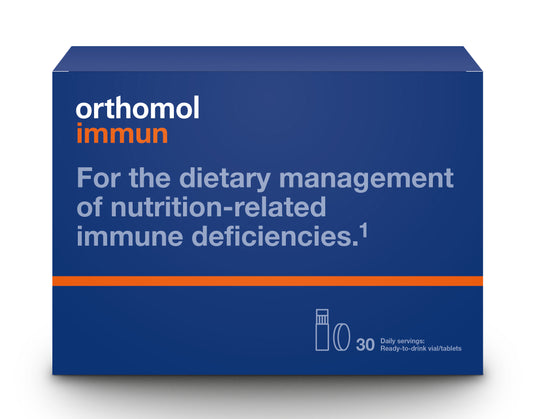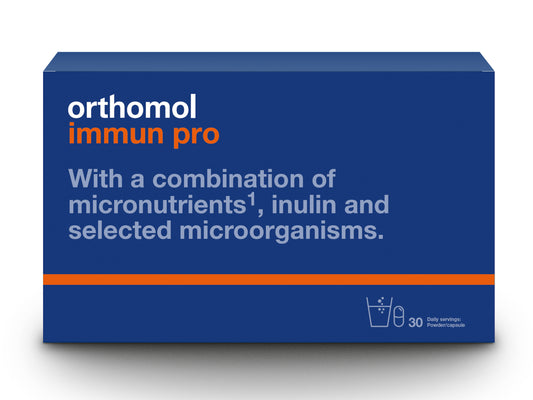The immune system – guardian of your health
In the course of a year, the body’s defences are faced with all kinds of challenges: stress at work and in our private lives, fluctuations in physical health and sometimes even illnesses – all of these are hurdles that have to be overcome. Here, the immune system plays a decisive role: fighting bacteria, viruses and fungi, tackling environmental pollutants and helping to heal wounds.
How does the immune system work?
The immune system is a highly complex and sensitive network that is spread throughout the entire body. It includes the following organs: bone marrow, thymus, spleen, tonsils, lymph nodes and special blood cells, for example. The immune system consists of a non-specific part and a specific part that are closely linked in their mode of operation and are mutually supportive. The non-specific mechanisms are the first line of defence and are active from birth. Two key players in the non-specific defence system are the phagocytes and the natural killer cells.
If viruses or bacteria manage to enter the body (e.g. through a wound), these defence cells are activated. They identify the germ, absorb the foreign cell and destroy it. Some invaders cannot be immediately identified as dangerous foreign cells because they are cleverly disguised. Specific, acquired defence is then deployed. This is tailored defence which only develops in direct confrontation with certain pathogens. The defence cells in the specific immune system are B and T lymphocytes, for example. B cells can mark germs with special proteins (antibodies), making them identifiable for phagocytes and natural killer cells.

Boosting the immune system
The sheer complexity of the tasks performed by the immune system means that it relies heavily on a sufficient supply of vitamins and trace elements. Individual cells in the immune system have to be constantly “reproduced”. All substances that are needed must therefore be continually ingested in sufficient amounts through food in order to boost the immune system.
Supplying immune-specific micronutrients and fulfilling requirements
Vitamins and trace elements such as vitamin C, vitamin D, zinc, selenium, copper, folic acid, vitamin A, vitamin B
2 and vitamin B
12 contribute to the normal function of the immune system. When the immune system is activated, the immune cells must quickly divide and develop. Zinc plays a role in the process of cell division and vitamin A plays a role in the process of cell specialisation. Free radicals can be produced during immune reactions. The antioxidants vitamin C, vitamin E, vitamin B
2 and also zinc, selenium, copper and manganese contribute to the protection of cells from oxidative stress. The mucous membrane in the respiratory tract plays an important role as a barrier against all kinds of germs, and vitamin A, vitamin B
2, biotin and niacin contribute to the maintenance of normal mucous membranes.
Certain diseases can increase the need for vitamins and trace elements. For example, patients with acute and chronic illnesses are frequently in need of extra micronutrients. It is not always possible to meet this need with normal eating habits, however. Numerous vitamins, trace elements and phytonutrients are vital for enabling the immune system to function normally.
 Sale
Sale Sale
Sale Sale
Sale




